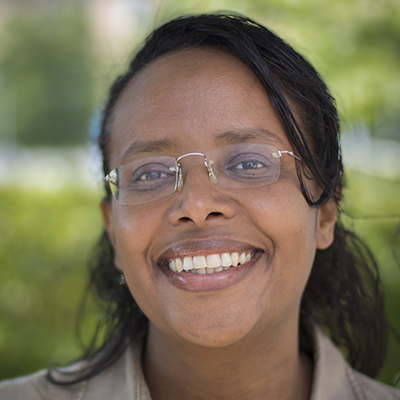This is a continuation of our "IANR is Global" series, which highlights the many ways internationalization is woven through the Institute of Agriculture and Natural Resources: through research collaboration, government and private industry partnerships, extension work, student educational experiences and the IANR community from around the world.
This edition is specifically focused on the many global voices we have or have invited to campus who will be sharing their expertise through seminars during fall semester 2020. Guest speaker Dr. Asmeret Asefaw Berhe will be presenting a talk entitled “Digging deeper: persistence and climate sensitivity of deep soil organic matter” on September 9 as part of the School of Natural Resources’ Fall Seminar Series. We appreciate the expertise we are fortunate to have from all over the world, as shown by their many and varied contributions to the work of the university and our continued mission to create a globally engaged institution. To this end, we want to help our campus community get to know each other (and the world) more, starting with these experts.
Where is your hometown? Where did you receive your education?
My hometown in Asmara, Eritrea in the Horn of Africa. Asmara is in the central part of Eritrea, in the highlands of East Africa. I attended local schools and then completed my Bachelors of Science in soil and water conservation from University of Asmara.
Tell us a little about your path to where you are now.
Ever since I started college and learned about the science of soil, I have been hooked. I continued to study land degradation for my Masters at Michigan State University in the United States. At MSU I received an MSc. in Political ecology and studied land degradation caused by armed conflicts, in particular landmines. I then moved to California 20 years ago and never left. I received a PhD in Biogeochemistry from University of California (UC), Berkeley; and conducted postdoctoral research in soil biogeochemistry at UC Berkeley and UC Davis before starting my faculty position at UC Merced in 2009.
In the soil biogeochemistry group that I lead at UC Merced, aaberhe.com I have the pleasure of working with a dynamic and diverse group of early career researchers to investigate how and why organic matter persists in soil for long periods of time; and how soil controls atmospheric climate my regulating flux of greenhouse gases between land and the atmosphere. We are passionate about education, equity, and inclusion of people from all walks of life in our science, outreach, science communication, science policy, and other activities.
What is something people don’t know (or that you wish they knew) about where you’re from?
Eritrea is an incredibly beautiful place, in more ways than one. The country is located on the coast of the Red Sea and covers incredible gradient of climate and biomes within a very short distance.
Are you engaged in any international partnerships or collaborations in your current role?
Yes. I am fortunate to work with scholars from across the world, esp. Africa and Europe.
Why is it important for institutions like the University of Nebraska to prioritize inviting/hearing from people with experience from different parts of the world?
Living, working and engaging in discussion with people from across the world has been one of the most enriching experiences of my life. I have learned a lot from people from different cultures and those who have very different experiences from me, not just on science, but also life experiences, cultures, and so much more. I think science is done right when it includes diverse perspectives and approaches that are informed by our backgrounds and experiences.
What is one piece of advice you would share with students, especially those who are interested in an international career?
My advice to those who are interested in international careers is that they should make friends with diverse groups of people, travel, learn about the world, and expand your horizon. It should also be said that we should be advising students pursuing International careers that they should work with local communities, and make sure to respect their cultures, experiences, and contributions.
We encourage the campus community to attend Dr. Berhe's seminar at 3:30 p.m. on September 9 via Zoom.
---
Are you giving a seminar in fall 2020 (or the future) and have an international element to your work, studies or experiences you'd like to see highlighted? Contact Brianne at bwolf4@unl.edu.
